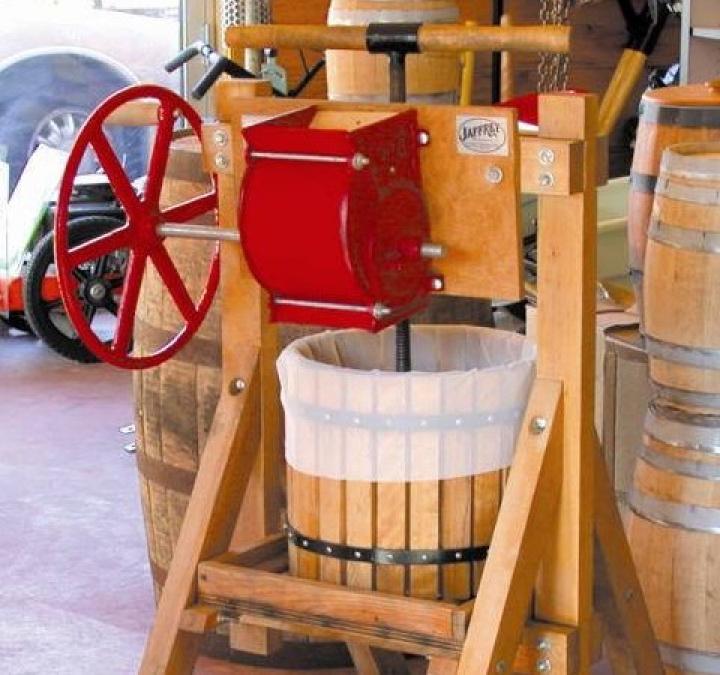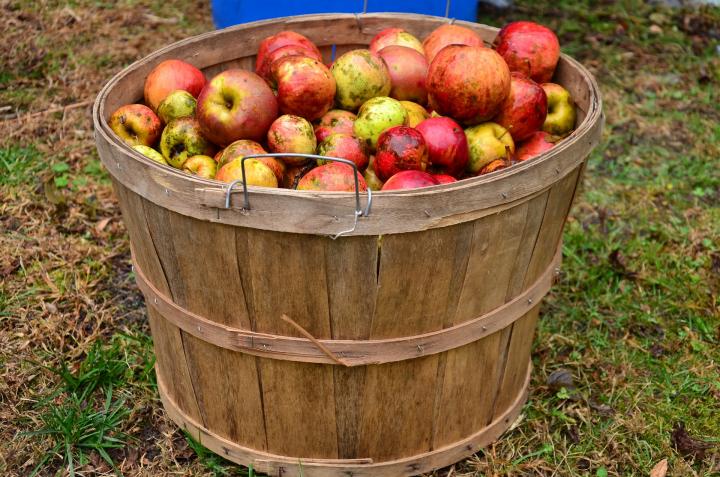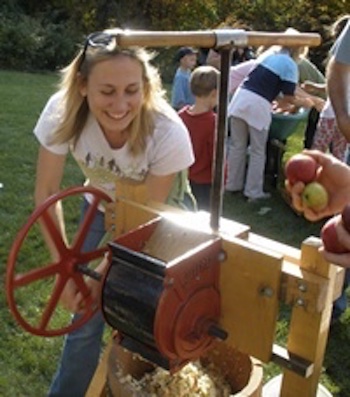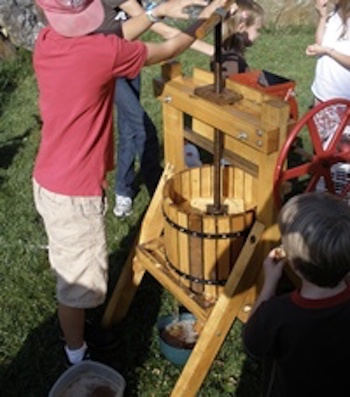
Making Homemade Apple Cider
Hi, Jessica. Apple juice undergoes filtration to remove pulp, so what you have coming of your press is considered cider. So glad you enjoyed the information! Thanks for letting us know.
We just started pressing apples from our 6 trees. We started in early October. Last weekend November 2 we tried to press some more but got 1/4th the yield. Do apples dry out late in the season? What is the preferred pressing season?
Also we have goats and I am wondering if we can feed them the residual pressed apples or will the seeds hurt them.
Thank you for the help.
Hey there, we have been pressing our orchard apples and there have been swarms of bees. It’s impossible to figure out where on our land they are coming from. Any recos or strategies for keeping them at bay?
Of course, the bees are important for pollination. However, once the flowers are gone (containing nectar and pollen for food), bees will look for any sugars or sweet substances such as the apple cider!
If it’s truly a swarm, you have a hive nearby. The hive might be overcrowded which produces swarming. Or, the bee hive is sub-dividing and you’ll see a lot of bees for a day or two while they look for a new home. They’re not generally aggressive.
To reduce swarms in orchards, it’s important to pick up damaged, dropped, or overripe fruit.This fruit should be collected regularly and discarded.
Finally, when you press cider, there’s always going to be some bees! Just watch out for them in the collected cider and don’t swallow any!
My husband and I have pressed cider as a social thing in Vermont for over 10 years. We've moved south now and Have continued the tradition; however, the mix of apples we used were all too sweet--hence the cider is too sweet for our taste. Do you know how we can dilute this (other than water) to make it more tart? Everything I see on the internet speaks of fermentation when making hard cider. We just wan regular cider to drink. Thank you
I'd suggest going by a brewing store and picking up something to perk up the acidity of your apple cider. I'd start with malic acid since that's the acid most prevalent in apples as far as I know, but you could experiment with tartaric and citric acids to get just the right taste. These three acids should be available at any store for winemaking or you could order from a brew site like morewine or amazon. Just plain "acid blend" would be better than nothing, I don't use it in my wines and meads very often but I have used it to perk up the odd jam or jelly that just tasted too sweet (since the sugar is important for the set, you can't just add less, you pretty much HAVE to balance it with acid). Or toss a handful of Granny Smith, craapples or some other kind of tart apple into the mix, maybe some that aren't at peak ripeness yet? Or even toss a lemon in (experiment, you might find you like the bitterness from the pith or you might find just some lemon juice is enough).
We just used one type of apple out of convenience and it turned out beautifully. However, a great cider often has a mix of apples that are both tart and sweet varieties. You do NOT want to just add water as that will make the cider less sweet, but also thinner or more watery tasting. We’d suggest you top of the cider with pure apple juice. Just take a sample first and test it out to see if you like the taste. Also, if you happened to heat your cider to kill bacteria or put yeast in it, that also adds to the sweetness so you’d definitely need some tarter apples in the future. Just avoid too much tartness or it will be quite acidic.
I grew up less than a mile from Elbridge Gerry's Cider Mill in Lynnfield, Mass. We used to go there and fill our glass from the wooden sluice from the press. I believe the stems and the occasional wasp gave it a character not to be found in commercial Cider today.
I was blessed with knowing a gentleman of big and kind heart who loved to talk and visit. We shared gardening ideas and how to care for fruit trees and garden tom's. Before he passed, he knew I made jams and jellies and made lots of apple juice in the kitchen. He said, "I have something I want you to have, cause I know you will take care of it and use it; I don't want it to go on the auction block and be sold to someone that will not take care of it, and my children won't ever use it." His kids are adults. :) He pulled out this big thing wrapped in plastic, and it was his apple press; so honored was I. I have used it and in my research to make cider, I used the internet and found that most of the East Coast apple growers, say NOT to use the apples on the ground if you wish to make cider, cause the enzymes in a wasp that is transferred in to the apple will react on the cider and turn it into vinegar....? So I use right off the tree apples and have had great success.
What an honor, indeed. Thanks for sharing this memory—and so eloquently.
According to experts, it is fine to harvest apples off the ground. This is the practice with many farms.
Apples on a tree are just as vulnerable to wasps as apples on the ground and there are many more vectors of acetobacter than wasps.












